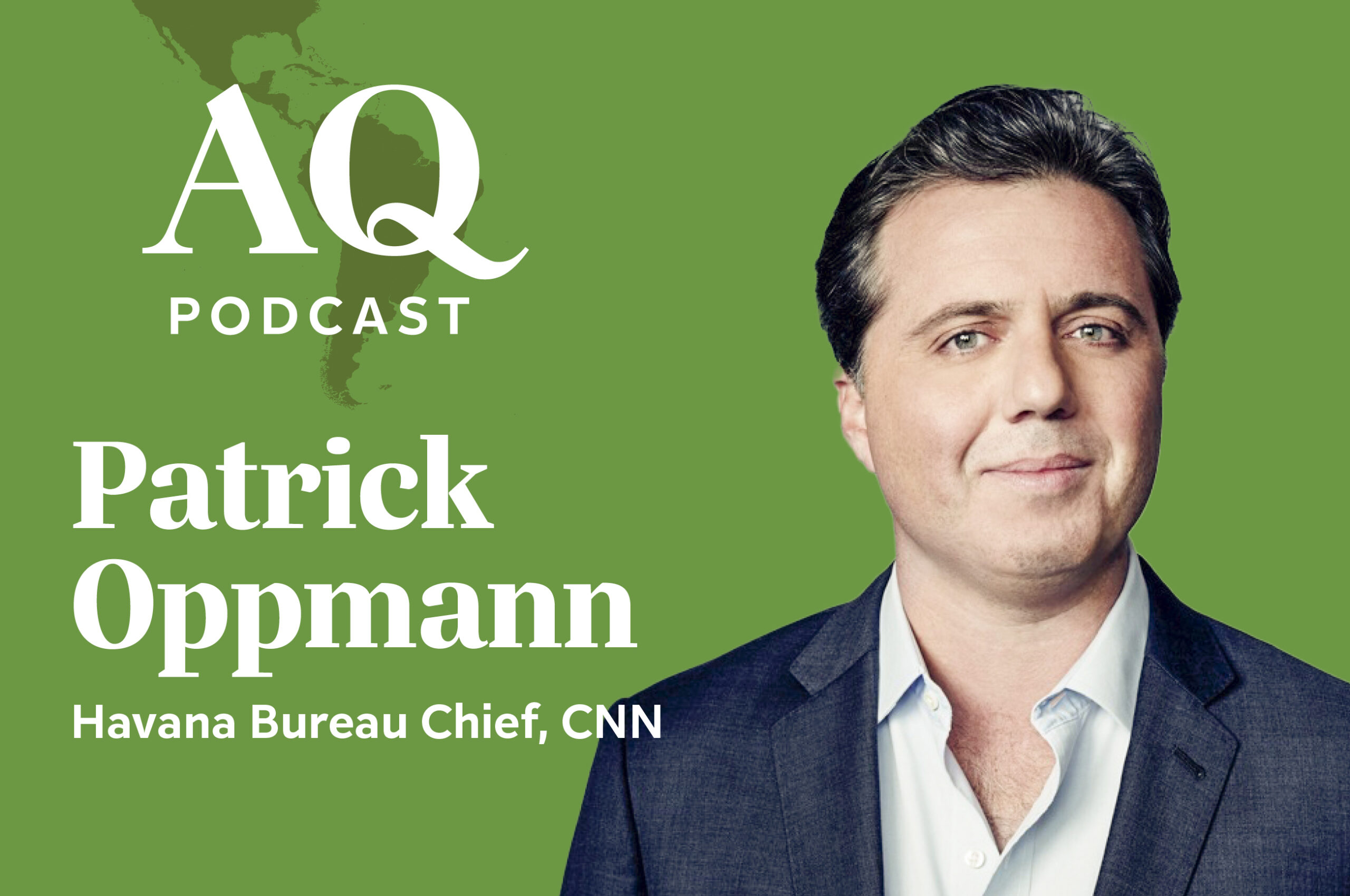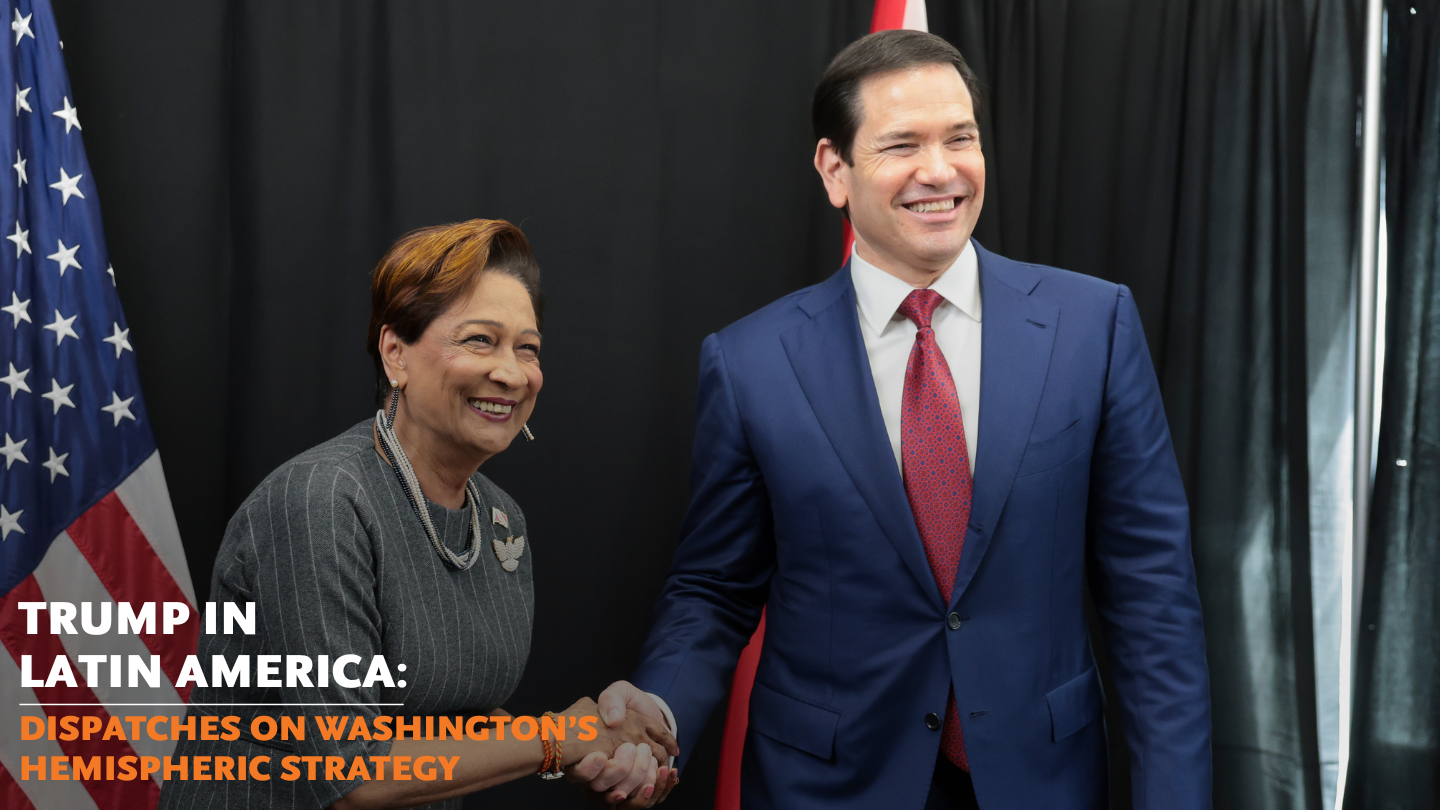Caribbean Security Initiative Takes Center Stage in Barbados
Caribbean Security Initiative Takes Center Stage in Barbados
U.S. Secretary of State Hillary Clinton visited Barbados to support the recent launch of the Caribbean Basin Security Initiative. The agreement, proposed last year by U.S. President Barack Obama, provides funds for anti-corruption and counternarcotics operations in 15 Caribbean countries.
A new security initiative for the Caribbean basin was at the top of the agenda this week in Barbados as leaders from across the region met with U.S. Secretary of State Hillary Clinton as part of two days of talks aimed at finding ways to curb rising crime. Just days after the OAS 40th General Assembly in Lima focused on similar issues, Caribbean leaders officially launched the Caribbean Basin Security Initiative (CBSI), which aims to combat the link between drug trafficking and violence threatening to destabilize the region. “The situation in Jamaica reminds us all just how important this work is,” said U.S. Attorney General Eric Holder at a CBSI inaugural event held in Washington on May 27. The CBSI summit comes after a three-day siege paralyzed parts of the Jamaican capital in the aftermath of the government’s attempts to extradite a wanted drug lord.
Upon arrival in Barbados, Clinton threw her support behind the initiative and touted the benefits each country stood to gain from their participation. "We're working to curtail the flow of guns and illicit funds to the region and to reduce demands for drugs," said Clinton. “CBSI means working together not only to strengthen national security forces and anti-trafficking efforts, but also focusing on broader citizen safety partnerships and social inclusion.”
U.S. President Barack Obama first proposed the CBSI at the Fifth Summit of the Americas, held in Trinidad and Tobago in April 2009. Though U.S. Congress apportioned $37 million rather than the $45 million requested for FY2010, the State Department stepped up its request for the next budget to $79 million in 2011. The CBSI’s core mission will be to tackle the substantial trafficking of illegal narcotics and arms plaguing the region and funding violent organized crime syndicates. The complexity and political power of these gangs is evident in places such as Jamaica, where officials reported 1,660 homicides in a country of just 2.7 million, representing a 306 percent increase over the course of the past two decades. Trinidad has witnessed dramatic uptick in the number of homicides as well, recording 506 in 2009 in a country with a population of 1.2 million—a 400 percent increase since 1999. In both cases, the number of drug-related homicides was above 50 percent. Officials hope that by targeting the source of the security problem, they can reach goals of increasing public safety and security as well as promoting social justice and democratic institutions.
The five-year initiative will primarily be funded by the United States and will eventually include a U.S. naval vessel operated by an international crew. $21 million of the funds will go towards social justice and education programs, with the remainder for training and equipment of police and military forces from each of the participating countries: Antigua and Barbuda, the Bahamas, Barbados, Belize, Dominica, the Dominican Republic, Grenada, Guyana, Haiti, Jamaica, St. Kitts and Nevis, Saint Lucia, St. Vincent and the Grenadines, Suriname, and Trinidad and Tobago.
In addition to financial and logistical support, Washington reallocated security funding for the Dominican Republic and Haiti from the Merida Initiative to the CBSI in an effort to better coordinate operations and prevent any criminal spillover from one region to another. The Merida Initiative, a security project launched in 2008 by the United States to provide equipment and training to support law enforcement and long-term reform and oversight of security agencies in Mexico and Central America.
Caribbean leaders hope the CBSI will act as a mechanism for incorporating support from non-member states for mutually beneficial objectives. The CBSI builds on the Proliferation Security Initiative Agreement (PSI), which has gained the support of numerous Caribbean countries (most recently St. Vincent and the Grenadines). Launched in May 2003, the PSI comprises 97 nations from 6 continents and focuses on suppressing the proliferation of weapons of mass destruction, their delivery systems and other sensitive technology.
The U.S. response to growing crime in the Caribbean has drawn critics. In December 2009 congressional testimony, U.S. Assistant Secretary of Defense Stephen C. Johnson argued that Washington’s commitment to the Caribbean has been insignificant since the end of the Cold War. “Some $3.2 billion over 25 years is insignificant compared to what the United States spends on security assistance in other parts of the world, especially the Middle East,” he said. Anthony Maingot, a Trinidadian scholar-in-residence at Florida University, describe the U.S. budget for anti-trafficking efforts as “a drop in the bucket” in a BBC interview.
But others view the new initiative as an opportunity for cooperation. “It is essential that the Caribbean states work together to coordinate their respective resources to counter the multidimensional threat to our security,” said Dr. Errol Cort, Chairman of the Caribbean Community (CARICOM) Council for National Security and Law Enforcement. Cort, who also holds the post of Minister of National Security and Labor for Antigua and Barbuda, added: “The criminal world has no borders, no bureaucracy, and will operate with relative impunity.”
Learn More:
- Read an AS/COA analysis of recent unrest in Jamaica in relation to the rise of drug-related crime.
- The U.S. State Department’s resource guide outlines the CBSI.
- The U.S. Embassy in Barbados gives a detailed outlook of the CBSI and its goals in the report: “A Shared Regional Security Partnership.”
- The Guardian of Trinidad and Tobago provides a feature written by a Scotland Yard official about the CBSI.








